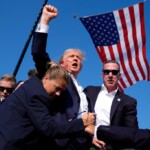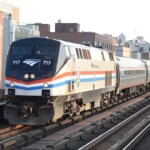The US Secret Service agents in charge of Donald Trump’s July 13 rally failed at nearly every opportunity before and during the former president’s rally in Butler, Pennsylvania, according to a scathing 94-page Senate report on the July 13 sniper attack released Wednesday.
Perhaps no moment is more emblematic than the detail about how a poorly trained Secret Service agent had to call a 1-800 tech support hotline to get support to fly a drone that could have spotted Crooks and his efforts to case the grounds, officials said.
A scathing 94-page Senate report released Wednesday — by the Homeland Security and Governmental Affairs Committee and Permanent Subcommittee on Investigations — found a slew of missteps and miscommunications that allowed gunman Thomas Matthew Crooks to wound Trump and two other supporters, and kill fireman Corey Comperatore, 50.
“Multiple foreseeable and preventable planning and operational failures by USSS contributed to [Thomas] Crooks’ ability to carry out the assassination attempt of former President Trump on July 13,” the preliminary report read.
“These included unclear roles and responsibilities, insufficient coordination with state and local law enforcement, the lack of effective communications, and inoperable C-UAS systems, among many others.”
Inexperienced agent oversees counter-drone operations
The Secret Service agent in charge of flying a counter-drone at the Butler rally ran into technical difficulties, officials found, leading him to rely on a toll-free tech support hotline for help.
The agent admitted that he had less than an hour of training on how to operate the drone, with another agent giving him only a brief rundown before leaving him in charge.
The issue caused the deployment of the counter-drone to be delayed for hours. That gap allowed Crooks to fly a drone of his own to survey the area without being noticed, according to the Senate report.
Getting Trump off stage ‘did not cross my mind’
Even after agents and law enforcement were made aware of a threat to the former president — they did not act to warn Trump and get him off stage.
“Shortly before shots were fired, a [Secret Service] counter-sniper saw local law enforcement running toward the AGR building [where Crooks was spotted] with their guns drawn, but he did not alert former President Trump’s protective detail to remove him from the stage,” according to the report.
“The [Secret Service] counter sniper told the Committee that while seeing officers with their guns drawn ‘elevated’ the threat level, the thought to notify someone to get Trump off the stage ‘did not cross [his] mind.’”
Special Agent in Charge was out of reach
During his entire time at the rally, the Secret Service Special Agent in Charge (SAIC) of the Pittsburgh Field Office did not have a working radio on his person, the Committee found.
The agent had decided to give his radio that day to the lead advance agent who flew in and was experiencing trouble with her radio.
The Pittsburgh Secret Service head was on his way to get a coder from the motorcade to fix the device when the shots were fired.
Radio problems ‘common’ at Secret Service
A breakdown in communication was a common theme highlighted in the Committee’s report, finding that the sniper team who ultimately killed Crooks failed to pick up local radio alerts about the threat.
Several agents said they failed to pick up local radios on the day of the shooting — which would have allowed them to communicate directly with the local SWAT teams at the site where Crooks was.
Agents also said their agency-issued radios were on the fritz, which they said were common for the Secret Service.
Reports of threats were not passed along
Trump’s Butler rally saw the first time a counter-sniper unit was deployed to his campaign rallies over credible intelligence of an Iranian assassination plot targeting the former president.
However, the lead agent charged with securing the Butler rally is accused of not passing along that information to the Special Agent in Charge of the Pittsburgh field office.
According to the report, that local head only learned that the counter-sniper team was going to be in place when he was asked to find housing for the agents.
He told investigators he was never made aware of the additional information about a threat against Trump.
No visual barriers at Trump rally
The report also highlighted the Secret Service’s failure to set up visual barriers around the rally site that could have blocked Crook’s view on Trump from the AGR building.
Despite being just 130 yards away from the stage, Crooks had a clear line of sight on the former president.
Request for Counter Assault team liaisons denied
Trump’s Secret Service detail had requested Counter Assault Team liaisons prior to the Butler rally, but the request was denied.
The agents would have coordinated with the Secret Service and local SWAT teams on the ground, which could have sped up the hunt for Crooks.
“These requests were denied, at times without explanation,” the committee said.








